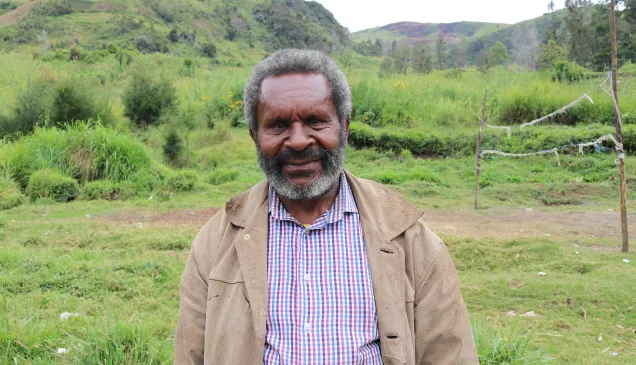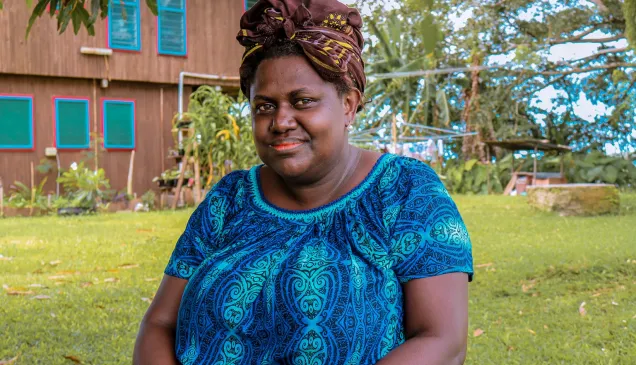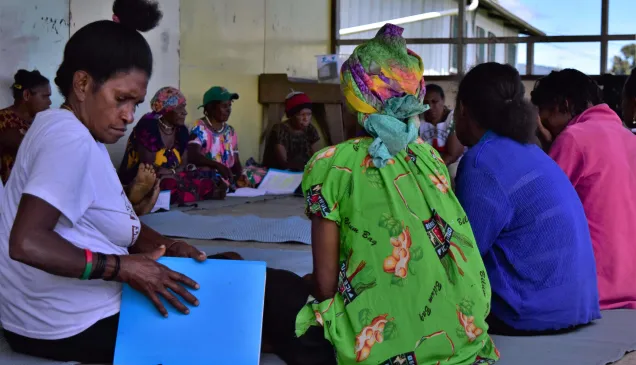Hopes for peace amongst tribal fighting in Hela
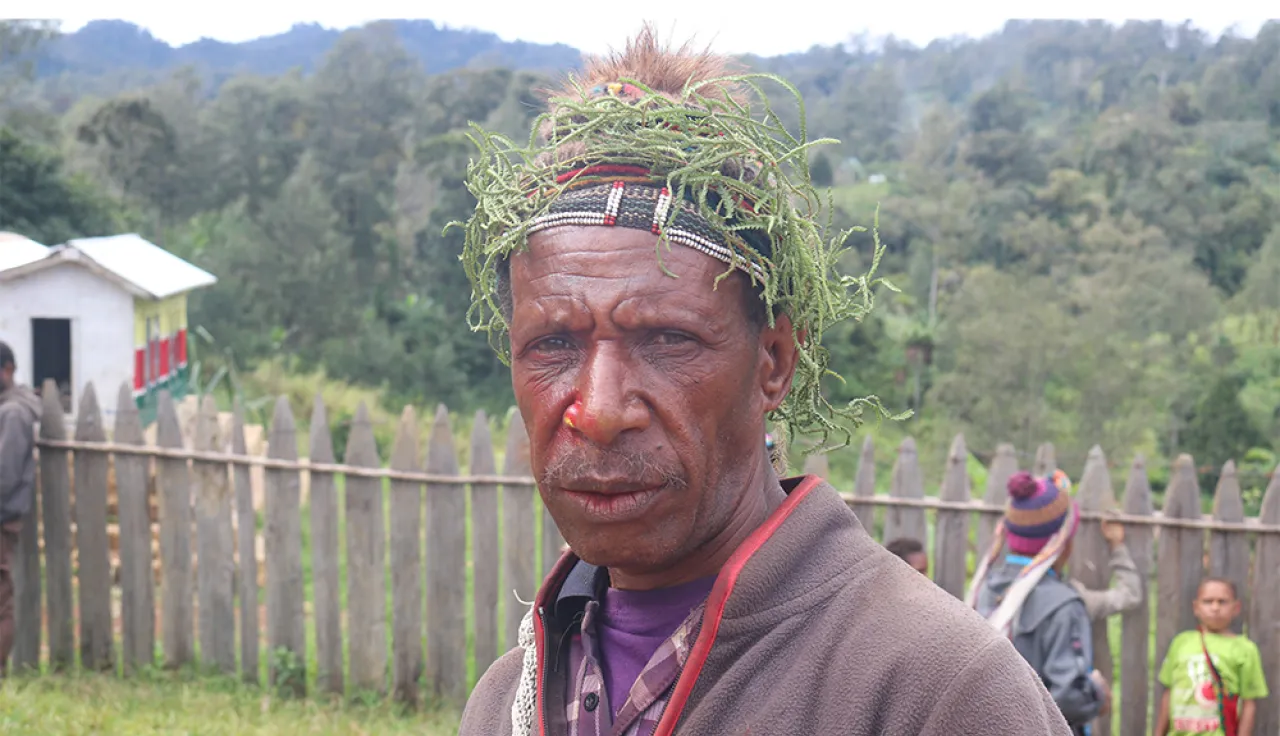
"In a blink of an eye we lost loved ones, our schools, the aid post, and many properties which took us time, resources, and money to acquire. Our children are not going to school. We are stuck in our own village and cannot travel out because of fear of being attacked. My business is also gone", says Bruce Hiruma, a leader from the remote Yatemali village located in North Koroba, Hela Province. His tribesmen describe him as a "born leader" because of his kind, hardworking and humanitarian spirit.
He spends his days working towards peace.
Hiruma was a regional councilor for some time before quitting and venturing into a small business. He has a brave and chatty character and an easy-going personality. He is known to step in to help others when needs arise, not only during peace negotiation processes but also when his community needs him, supporting school fee assistance, or help for assistance for social and family commitments as weddings, among others.
Hiruma is well respected and listened to every time he stands and talks to his tribe. He was the one who stood tall during the peak of fighting and negotiated peace between his clan and the enemy clan last year. But recently, despite sleeplessly going around talking to both parties to persuade them to discuss possible options to solve the problem rather than fight, nobody listened to him. He was overruled.
"I couldn't do anything but to run away when the enemy attacked us. My two trucks were completely damaged and the business activities in which I invested a lot of resources, time, and effort to build up were destroyed. I couldn't drive out because the only access road was blocked off by the enemy tribe," he tells, with so much serenity that it's easy to forget that fighting continues around his community.
"Nothing can be done to bring back what was lost during the fight. The only way forward would be to start all over again, but that can only be done if there are available resources".
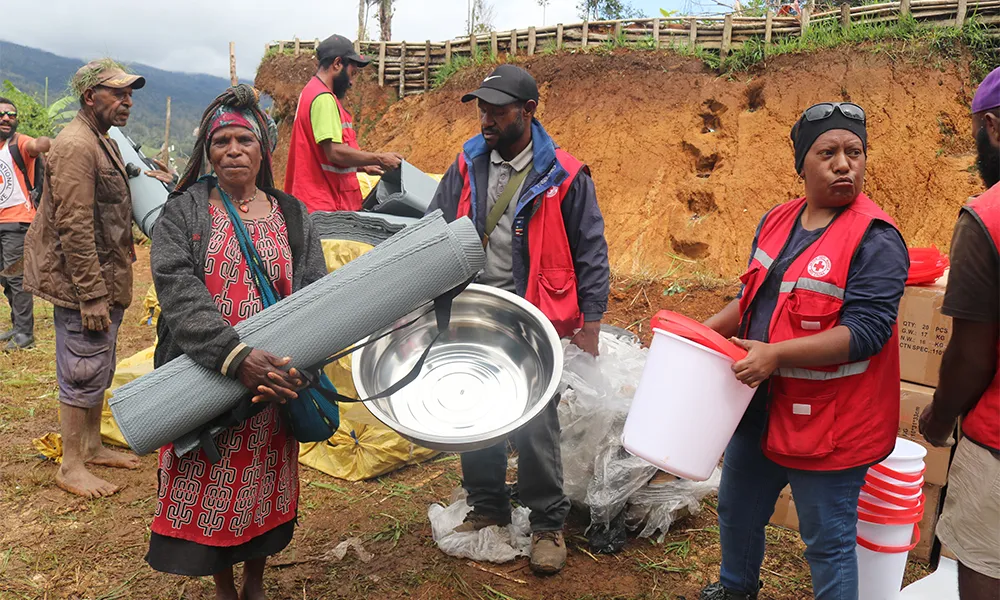
R.Tabel / ICRC
Despite the challenges, Hiruma still believes in change and has been working around the clock to start the peace negotiation process. He said the process comes with a lot of risks and sacrifices, but he believes that peace and normalcy would be restored if he takes one step at a time. He said people in his village have realized and experienced the impacts of tribal fights and have cooperated with him to find a better way forward.
"I am not worried about myself; I will one day die and go back to the Earth. My biggest fear is not supporting my children to access to basic services such as education, health, and others. My people wish to move around freely, and my children keep complaining about when they will go back to school. I cannot just sit there and watch, I must do something. That is why I decided to stand up and take the first step forward," he said.
Hiruma explained that tribal fighting in the Highlands of Papua New Guinea is prevalent and is often used to solve problems that arise from disputes over land, pigs, women, and political differences. In the past however, the fighting was contained to a battleground and women, children, the elderly, and public and private properties were respected by both sides.
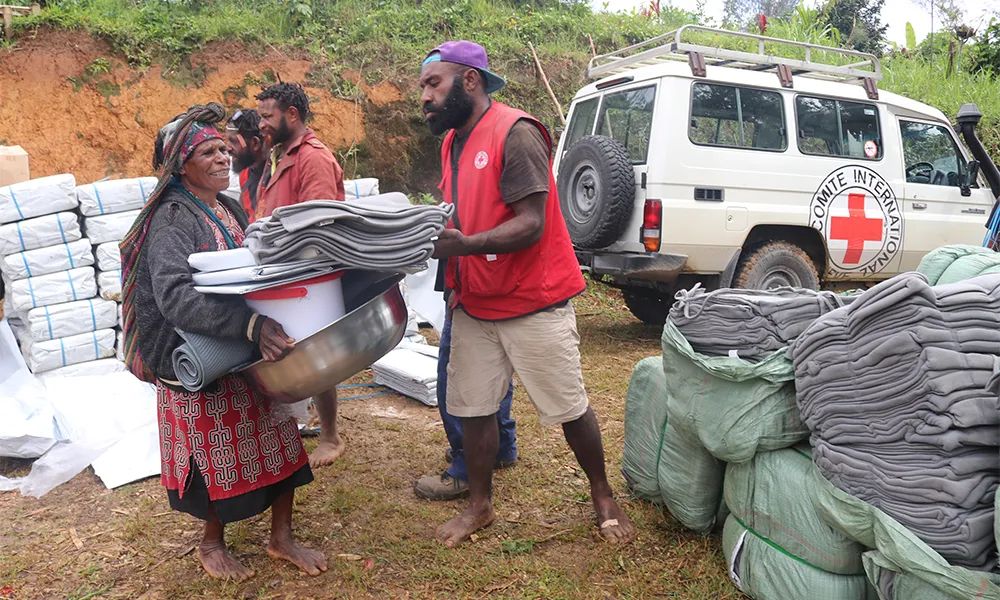
R.Tabel / ICRC
"The process of negotiation peace and discussion takes a lot of effort and time. It is not a one-way traffic. Both parties have to sit, discuss and agree and set certain terms and conditions for them to adhere to as the process of peace negation. Then there is a compensation ceremony", Hiruma adds.
Hiruma believes his effort will bear fruit and that one day, the warring tribes will make lasting peace.
By Reuben Tabel/ICRC

